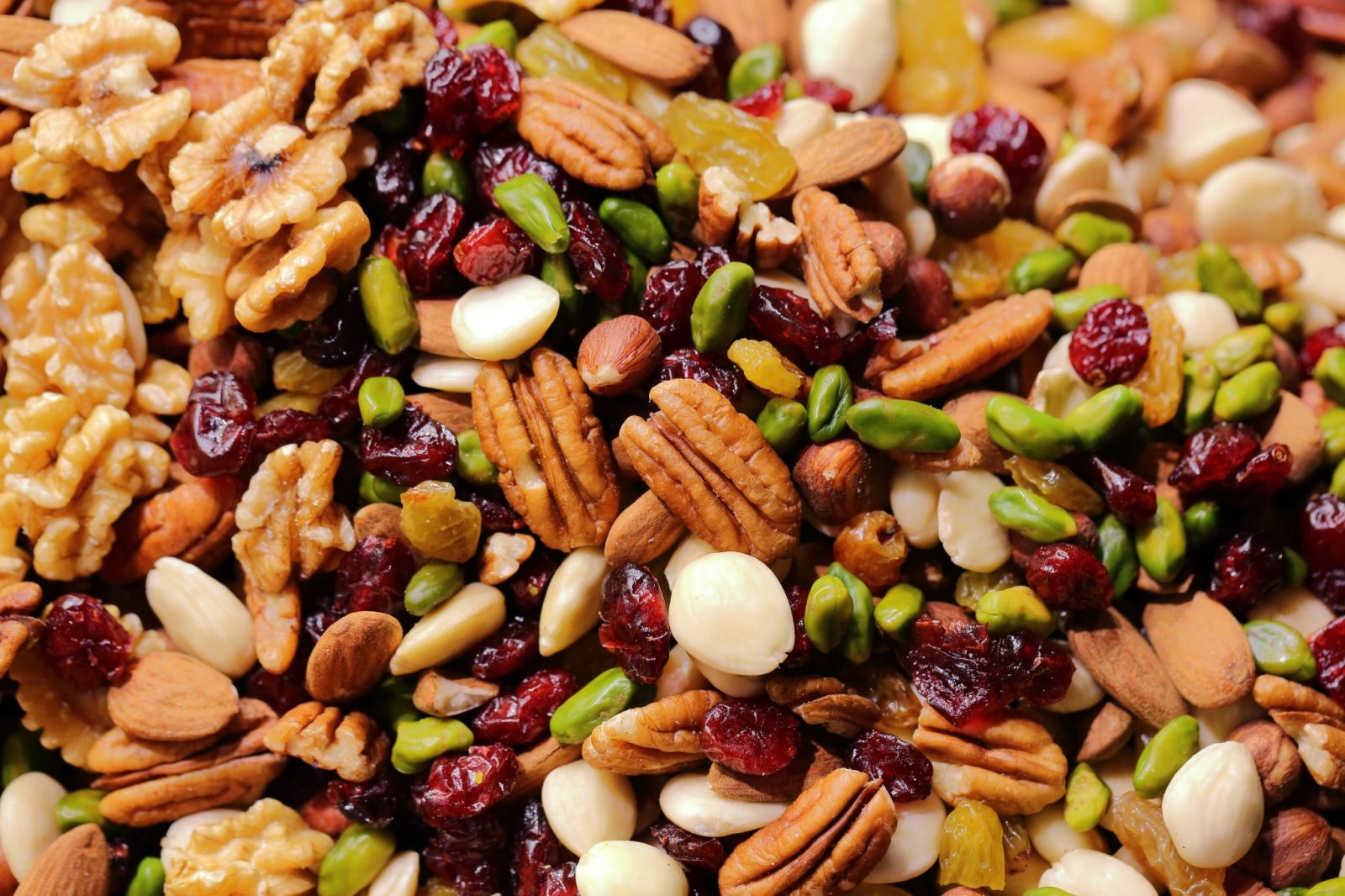Frequent consumption of nuts protects against coronary heart disease (blockages that lead to heart attacks) – 1 to 4 times per week correlated with 27% reduction in heart attacks, and 5 or more times per week correlated with 48% reduction in heart attacks. In postmenopausal women, nuts 4 times per week reduced death from heart attack by 40%. Studies in nurses and doctors showed less fatal cardiac events and sudden deaths if nuts were consumed regularly.
Nuts can reduce the risk of metabolic syndrome, where there is concurrent excess body fat, high blood pressure, high sugar levels and raised cholesterol, posing increased risk for heart disease, stroke and type 2 diabetes. In a randomised trial where the Mediterranean diet was supplemented with nuts, this resulted in the greatest reduction in metabolic syndrome (another intervention group was just olive oil, which also helped but to a lesser extent).
A review of 25 studies showed that nuts can reduce bad cholesterol (LDL) compared to control groups – almonds and walnuts are most potent. And nuts 5 of more times per week can reduce the risk of type 2 diabetes by 27% (pistachios), plus can reduce risk of specific cancers such as pancreatic, prostate (Brazil nuts) and colon cancer (peanuts).
Penultimately, studies have shown a regular handful of nuts results in a 20% mortality benefit, that is, less likelihood to die.
Wow – so worth considering a prescription of nuts in your daily diet (but of course beware of allergies). The other good news is that nuts are nutrient dense and won’t necessarily increase your weight (Spanish meta review of 31 studies).
References:
- Loma Linda University research n=31,208 over 12 years
- New England Journal – Iowa Women’s Health study
- British Medical Jounral – Nurse’s Health study, n=86,016 over 18 years
- Physician’s Health study, n=22,000 over 11 years
- Archives of Internal Medicine n=751
- Shanghai Women’s health study n=64,000 over 5 years
- New England Journal of Medicine, Dana-Farber Cancer Institute, n (men) = 42,498 and n (women) = 76,464 over 24-30 years
